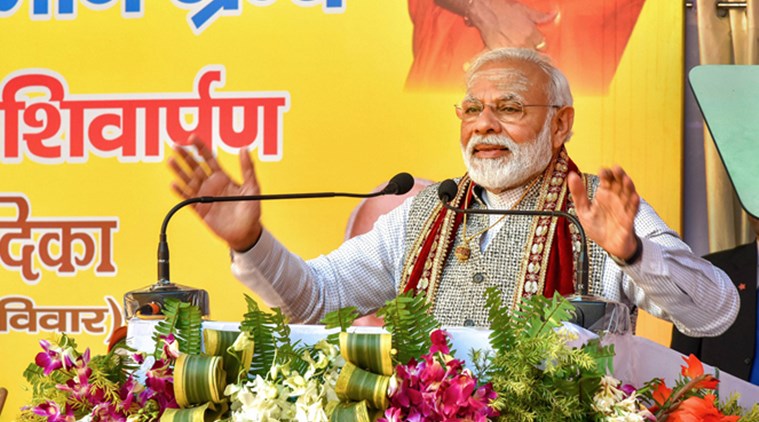Government would stick to 370, CAA ‘despite pressure’ Modi

Even as protests continue in several parts of the country and many countries have also expressed their reservations on the decisions regarding CAA and making instant triple talaq illegal in the country, this is the first time PM Modi has acknowledged that the Union government was facing pressure on its recent decisions. The Prime Minister’s statement comes amid continued protests against the CAA in various parts of the country.
Speaking at a public meeting in his Lok Sabha constituency, Varanasi, the PM said, “The abrogation of Article 370 in Jammu and Kashmir and Citizenship Amendment Act (CAA) have been pending for a long time. There is pressure from the world but we will continue to take decisions that are important for the development of the country.”
Ruling out a rethink on the controversial CAA and scrapping Jammu and Kashmir’s special status, PM Modi said that his government will remain firm on the steps despite pressure from all sides.
“Be it the scrapping of Article 370 from Jammu and Kashmir or the Citizenship Amendment Act, the country waited for decisions on these for years,” he told a public meeting in Varanasi during a day-long visit to his Lok Sabha constituency. Despite pressure from all sides, we remain firm on the decisions and will continue to remain firm,” PM Modi said.
Provisions of Article 370 of the constitution, which gave special powers to the erstwhile state of Jammu and Kashmir, were scrapped by the government in August last year. The government enforced a severe lockdown on the erstwhile state and many of the restrictions continue to this day including the detention of three former Chief Ministers under a tough law.
The law, which promises citizenship to only non-Muslim refugees from Pakistan, Afghanistan and Bangladesh who came to India before 2015, has been criticised for making religion a test of Indian nationality for the first time in violation of the country’s secular constitution.
While critics of the law say it can be used along with the planned National Register of Citizens (NRC) to target Muslims, the government says it only intends to help people from neighbouring countries who have faced religious persecution in the past.
Earlier this month, PM Modi, while replying to the Motion of Thanks to the President’s address in the Lok Sabha, had called the CAA protests “a road to anarchy” and that “protest marches, violence, and arson” against a law duly passed and notified by Parliament will “create a problem for the country”.
He had also targeted the Opposition saying they are building narratives keeping only the vote bank in mind. Widespread protests, largely led by women, against the amended law which grants citizenship to non-Muslim minorities from Pakistan, Afghanistan, and Bangladesh have cropped up in the last two months. The law has become controversial largely because it excludes Muslims.
Several opposition ruled states across have also raised their concern against the CAA and said they will not implement the new citizenship law. Provisions of Article 370 of the constitution were unilaterally read down by the government in August last year.
Modi did not mention the prolonged detention and the booking under the Public Safety Act of three former chief ministers of Jammu and Kashmir, along with several other prominent leaders.
At a separate function, Modi referred to the setting up of Shri Ram Janmabhoomi Teerth Kshetra for the construction of the Ram temple in Ayodhya. “A trust has been formed for construction of a grand Ram temple in Ayodhya. This trust will work rapidly,” he said.
(Bureau Report with Agency Inputs: PTI Photo).

